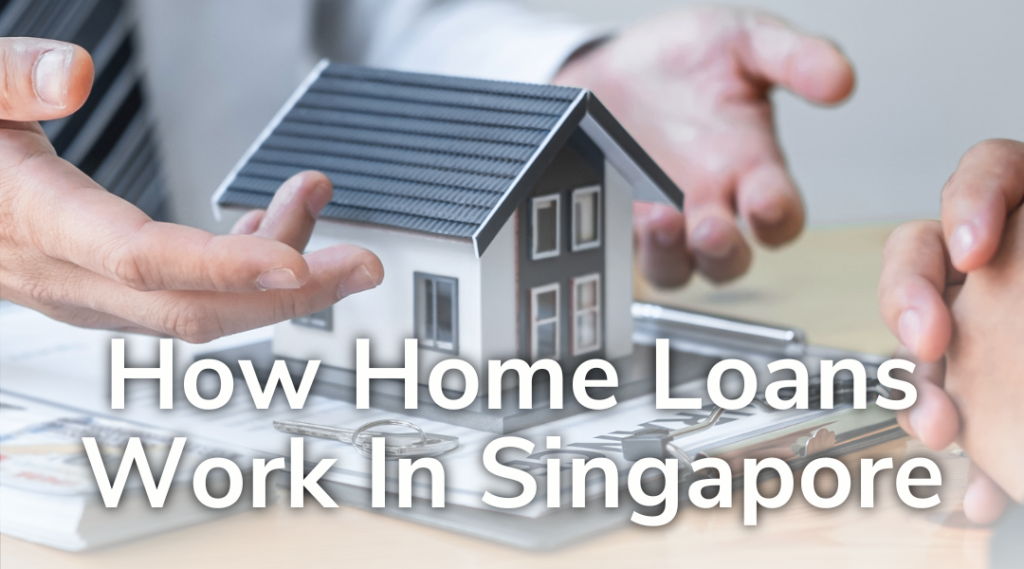How Home Loans Work In Singapore
Owning a home is a lifelong dream for many, yet despite hard work and savings, achieving this goal can be challenging. As we grow up, we realize that buying a house involves more than just saving money; it requires navigating finances, paperwork, legalities, and substantial funds.
Due to these hurdles, many people live in rented properties globally. However, Singaporeans tend to have a different mindset, preferring to own their own homes. Despite being one of the world’s costliest places to live, extensive government measures such as financial grants, market regulations, and accessible housing loans enable most citizens to afford homes. According to the Singapore Department of Statistics, as of 2023, 89.7% of Singaporeans stay in owner-occupied residences, making Singapore one of the countries with the highest homeownership rates.
The key to this high homeownership rate is accessible housing loans. The Singapore government has implemented measures that make housing loans affordable for residents, facilitating homeownership. If you’re looking to buy a home in Singapore and want to understand how housing loans work, you’re in the right place. Let’s explore how housing loans in Singapore work.
What are Housing Loans in Singapore?
Evident from its name, a housing loan in Singapore is the practice of borrowing a certain amount of money from either a Financial Institution (FI) or the Housing and Development Board (HDB) to help you afford a property.
When applying for a housing loan, you receive the necessary funds to purchase your house, with your property serving as collateral. You are only granted a certain loan amount, depending on your eligibility based on factors such as income, credit history, and property value.
Upon the purchase of a property, the loan is disbursed by the lender to the seller of the property after you make a down payment (the down payment amount is a percentage of the purchase price regulated by legislation). Interest is charged from the very first loan disbursement. You repay the loan in installments over an agreed period, with the property serving as collateral until the loan is fully paid off.
Where to Apply for Housing Loan – HDB vs Financial Institution
Singaporeans have two housing loan options to choose from – the HDB or Financial Institutions regulated by the Monetary Authority of Singapore. To decide which type of housing loan is more suitable for you, here is a detailed comparison between the two.
-
Repayment Period
The repayment period for a HDB loan is capped at 25 years or up until the applicant is 65 years old, depending on whichever is shorter. However, the repayment period for Financial Institutions is up to 30 years.
-
Interest Rate
HDB offers an interest of 0.1% above the prevailing CPF Ordinary Account interest rate, while financial institutions usually offer varying interest packages– depending on the prevailing market rate and the eligibility of the applicant.
-
Loan-to-Value (LTV)
The HDB Concessionary Loan allows for a maximum Loan-to-Value (LTV) ratio of up to 85% of the property purchase price. In contrast, the LTV ratio offered by Financial Institutions is capped at a LTV ratio of 75% for the first loan.
-
Mortgage Servicing Ratio (MSR) and Total Debt Servicing Ratio (TDSR)
The Mortgage Servicing Ratio (MSR) for HDB housing loans is capped at 30% of your gross monthly income, while Total Debt Servicing Ratio (TDSR) is usually not applicable. The MSR for housing loans by financial institutions is also capped at 30%, while the TDSR is capped at 55% of one’s gross monthly income.
Considering the above comparison, you can choose the option that best fits your financial situation and needs. Most people carefully evaluate these differences to make an informed decision before taking a housing loan in Singapore.
Interest Rates
The HDB concessionary interest rate is pegged at 0.1% above the prevailing CPF Ordinary Account interest rate. It is reviewed quarterly, in line with the CPF interest rate revisions.
On the other hand, the interest rates and accompanying terms offered by financial institutions are more susceptible to fluctuations. There are two main types of interest rate for loans offered in the market:
-
Fixed Rate Loans
Fixed rate loan, as the term suggests, offers a fixed interest rate that does not change for the contracted period – even with market fluctuations. Only after a certain fixed rate period ends does the interest become variable.
-
Floating Rate Loan
Floating rate (or variable rate) housing loans offers a varying rate which is tied to a reference rate such as the, Singapore Interbank Offered Rate (SIBOR) or LIBOR. The rate goes up if the reference rate goes up – and vice versa.
How Do I Find Out If I am Eligible for a HDB Loan?
Your HDB loan eligibility determines the maximum amount of money you can borrow. You can find out your HDB loan eligibility by applying for an HLE (HDB loan eligibility) letter.
This will help you plan for your property purchase by providing you with information on how much you can borrow and what monthly repayments you will have to make accordingly.
Get a Home Loan – Become a House Owner!
Getting a housing loan in Singapore might not be as simple as you think – it requires extensive paperwork and financial planning. If you dream of owning your own property one day, now could be the time to start looking for your loan options. There is an array of options for you to choose from – banks, HDB, or alternative Financial Institutions. If you are still unsure, head over to ValueMax – we offer housing loans with manageable interest rates and easy repayment plans!
Learn more about VM Credit
